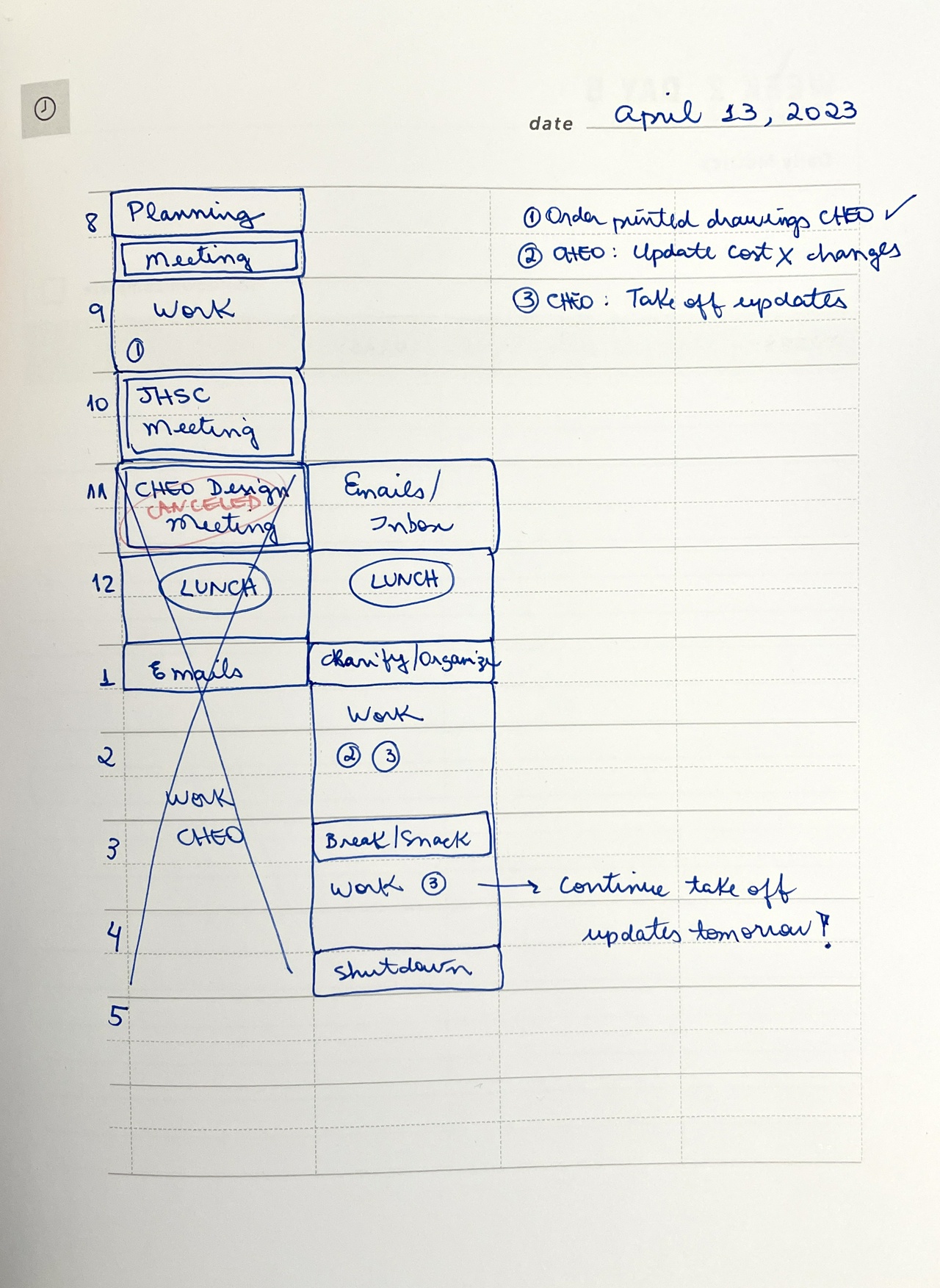I have been struggling with scattered focus during my work hours, constantly changing contexts, checking emails, and feeling overwhelmed. And I know it’s because there’s a lot going on right now. I find it difficult to decide what to do next when I look at my to-do lists.
I’ve used the Pomodoro technique with great success in the past. It’s basically a way to train attention, where you set up a timer for 25 minutes of focused work. It needs to be total focus, for the full 25 minutes: no checking email, no answering the phone, no talking to anybody. And then you take 5 minutes of rest. You do 4 cycles, then you rest for 15 minutes (long rest). I love this technique! It works really well for my brain.
However, now I'm having trouble DECIDING what to do and STARTING!
So, I'm trying out Time Blocking, using the suggestions from Cal Newport's book “Deep Work.” At some point during the pandemic, I even purchased his Time Block Planner: a paper planner customized with the way he recommends doing time blocking. At the time I used it for a week, but I thought it was too bulky to use.
But now, I’m really into doing some things using pen and paper. I feel like I can focus better, specially if I’m planning something or brainstorming ideas. So I got my Time Block Planner from the shelf and started using it again this week.

The Weekly and Daily Plans
This Time Block Planner is organized in weeks, so at the start of the week you have 2 blank pages to do some weekly planning. It’s a way to look at your commitments for the week, evaluate the amount of meetings, and do some high level planning of which projects or activities to focus on every day. It is not supposed to be detailed, it’s more like a direction for the week.
Then at the start of the work day, you make a daily plan, giving every minute of the day a job. You use the weekly plan as a guide. But you also review your calendar and look at your next actions list to decide what to focus on.
The interesting thing about Cal Newport’s planner is that you have space to renegotiate your plan in case of changes. Things will blow up, meetings will be rescheduled, and you are encouraged to rethink your daily plan and adjust it.
How it’s been so far
I started yesterday, a Monday after a long weekend. Mondays are the worst for me. I always feel overwhelmed and tired. I can never achieve anything I thought I would achieve.
The first hurdle I encountered was the decision paralysis. I couldn’t decide what to do in the morning. I scheduled half an hour first thing to make my plan. It wasn’t enough time. It didn’t help that I had 2 back to back meetings after that, and two more in the afternoon. I didn’t finish my plan, I basically updated it as I went, so it was not really planning in advance. It wasn’t a great day for deep work anyway, but I managed to complete 2 shorter tasks with the time I had in between meetings.
Today, I’m half a day in, and I planned the morning, which already changed 3 times. Then by noon I planned the afternoon. It was scary to write it down, like I wasn’t sure I could make it.
I’m discovering that I have difficulty planning ahead. For me, the future seems a homogeneous haze. I know it’s there, but I can’t really put a date to it. I am discovering that I have difficulty planning ahead in the immediate timeframe. Long-term, high-level planning is easier for me.
I will continue practicing with the Time Block Planner. It is giving me a better sense of time, and I am realizing that tasks take longer to complete than I initially thought. Sometimes I will mark 10 actions as my focus for the day, but realistically, I can only complete 1 or 2. Time blocking is helping me slow down, and slowing down is key for processing information and planning.
#productivity #timeblocking #planning #work #journal
Thoughts? Discuss... if you have a Write.as account or Reply by email
By Noisy Deadlines
Minimalist in progress, nerdy, introvert, skeptic. I don't leave without my e-reader.


 On the left: An early morning plan – On the right: a complete day plan
On the left: An early morning plan – On the right: a complete day plan

